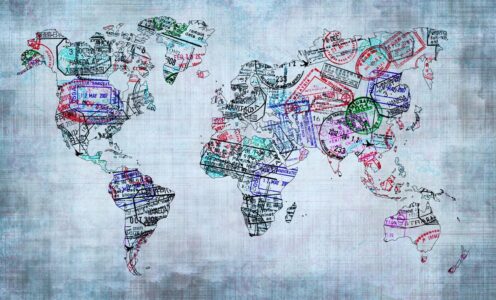APPLICANT PROFILE
Applicants for LFLW fellowships will be young and mid-career professionals attached to one of the partnering organizations with at least five years’ experience working in the fields of Community Development, Public Health, Social Policy, and related disciplines. They must be attached to an initiative/project or in an educational programme that aims at realising sustainable development. All applicants must be recommended by a partner institution with the assurance that the institution will support the applicant, if selected, during the fellowship. The applicant should be able to demonstrate:
- That addressing a challenge is important to achieving sustainability/sustainable development in their community.
- That they have sufficient initiative and leadership skills to address the challenge.
- What they will learn to address the challenge by making a visit to their chosen site.
- That they have the support of their employing organization to implement a change on their return from their visit abroad; and
- How completion of the fellowship will further their career plans in the chosen field and how they intend to contribute as alumni.
An independent selection panel will assess the application and if they approve the applicant for a fellowship, the Secretariat will assist the fellow in finding funding and match them with appropriate mentor/s as well as liaise with the Host organisations.
THE PLACEMENT
- Prior to the visit: the fellow will get in touch with the Secretariat and submit the application form. They will do sufficient preparation for their site visit communicating with nominated supervisor, mentor/s, and any past fellows who can provide them with useful advice and information about the site or their project.
- During the placement: the fellow will implement their workplan under the supervision of their supervisor and mentor/s; keep a journal and prepare a written and video report including a plan to undertake a pilot project when they return home.
- On completion of their visit: The fellowwill submit a final narrative report indicating how their experience will influence the next steps in their career as well as how it would benefit her own community/institution.
We expect that after their experience, LFLW fellows will be able to:
- Identify and define a development problem facing their communities.
- Collect and analyse relevant information to identify solutions.
- Find creative and innovative solutions to problems.
- Communicate effectively with representatives and leaders of civil society, and governmental and non-governmental groups.
- Justify, advocate for, and lead social change; and
- Set observations and solutions within both the local and global perspective.
- Most importantly help establish sustainable development in their communities/institutions
In addition, the fellows will develop lasting relationships with international colleagues and mentors and with the community of fellows. They will be expected to mentor future fellows and contribute to fellowship community activities.
PROGRAMME LEARNING
LFLW is continuously learning while we rollout the Fellowship. We are consulting widely, piloting and developing the nature of the fellowships and the organization of the programme, expanding the number of participating partners and countries, along with a sustainable funding model to expand the pool of Fellows.
In the longer term, we intend that this programme will create:
- A cohort of empowered international fellows committed to careers in leadership that inspires people to improve their lives.
- A publicly available database of educational and promotional materials based on good practices developed by the fellows, mentors, supervisors, and hosts.
- An expanding community of fellows, mentors, supervisors, hosts, funders, and other partners who continually influence local and global practices that positively impact people’s lives.
- Measurable long-term changes in educational, health and nutritional practices and in the economic productivity of the populations served at the sites and in the projects taken up by the fellows when they return home; and
- A set of innovative models and approaches to achieve Sustainable Development.

